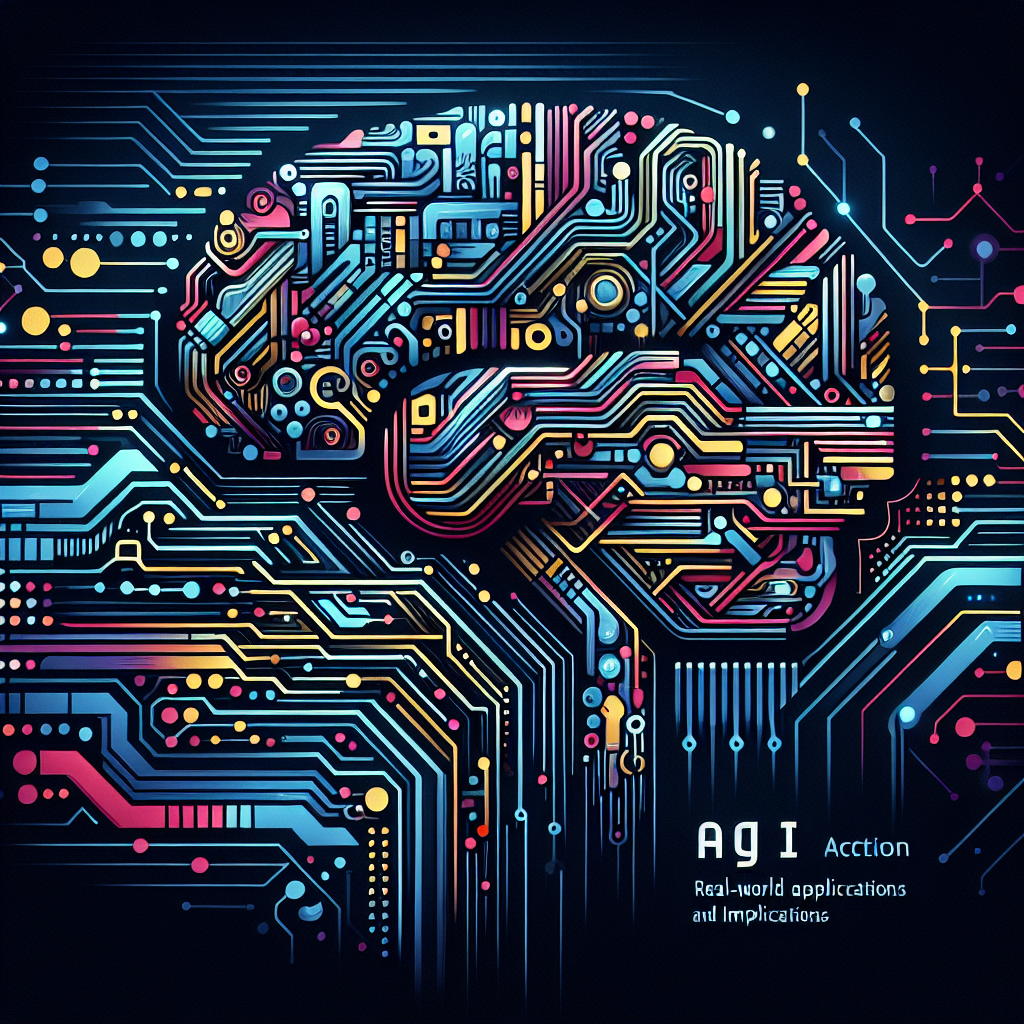Artificial General Intelligence (AGI) has long been a goal of the field of artificial intelligence, aiming to create machines that can perform any intellectual task that a human can. While AGI is still largely the stuff of science fiction, there are a number of real-world applications of AI that are moving us closer to this goal. In this article, we will explore some of these applications, as well as the implications of AGI for society.
Real-world Applications of AGI
1. Autonomous Vehicles: One of the most well-known applications of AI is in autonomous vehicles. Companies like Tesla, Google, and Uber are all developing self-driving cars that use AI to navigate roads, avoid obstacles, and make decisions in real-time. While these vehicles are not yet fully autonomous, they represent a major step towards AGI.
2. Healthcare: AI is also being used in healthcare to diagnose diseases, recommend treatments, and even perform surgeries. IBM’s Watson, for example, is being used to analyze medical data and assist doctors in making more accurate diagnoses. This technology has the potential to revolutionize the healthcare industry and improve patient outcomes.
3. Financial Services: AI is also being used in the financial services industry to analyze market trends, predict stock prices, and detect fraud. Companies like Goldman Sachs and JP Morgan are using AI algorithms to make more informed investment decisions and protect against cyber attacks.
4. Customer Service: Many companies are using AI-powered chatbots to provide customer support and answer common questions. These chatbots can understand natural language, learn from interactions, and provide personalized responses to customers. This technology is making customer service more efficient and cost-effective.
Implications of AGI
While the applications of AGI are numerous and promising, there are also significant implications for society that must be considered. One of the biggest concerns is the potential for job displacement, as AI has the potential to automate many tasks currently performed by humans. This could lead to mass unemployment and economic instability if not managed properly.
Another concern is the ethical implications of AGI, particularly when it comes to decision-making. AI algorithms are only as good as the data they are trained on, and biases in that data can lead to discriminatory outcomes. There is also the potential for AI to be used for malicious purposes, such as surveillance, propaganda, and warfare.
Finally, there are concerns about the impact of AGI on human relationships and society as a whole. As machines become more intelligent and autonomous, there is the potential for them to outperform humans in many areas, leading to questions about what it means to be human and what our role is in a world dominated by AI.
FAQs
1. What is the difference between AGI and narrow AI?
AGI refers to machines that can perform any intellectual task that a human can, while narrow AI is designed to perform specific tasks, such as image recognition or language translation. AGI is more flexible and adaptable than narrow AI, but it is also more challenging to develop.
2. How close are we to achieving AGI?
While significant progress has been made in AI research in recent years, we are still a long way from achieving AGI. Experts disagree on how long it will take to develop AGI, with estimates ranging from a few decades to a century or more.
3. What are the risks of AGI?
There are a number of risks associated with AGI, including job displacement, ethical concerns, and potential societal upheaval. It is important for researchers, policymakers, and the public to consider these risks and work towards developing AGI in a responsible and ethical manner.
In conclusion, AGI has the potential to revolutionize many aspects of our lives, from healthcare to transportation to finance. However, there are also significant implications that must be carefully considered and addressed. By working together to develop AGI in a responsible and ethical manner, we can harness the power of AI to improve society and create a better future for all.

